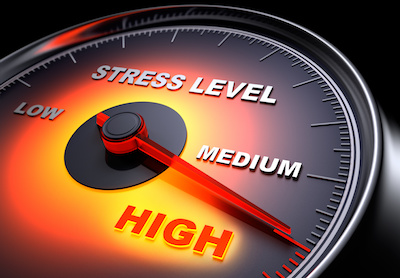 When you are on autopilot, you are highly efficient. But when the rules change around you, this can lead to disaster….
When you are on autopilot, you are highly efficient. But when the rules change around you, this can lead to disaster….
I lived in London for several years. Before moving to England, I considered myself to be an excellent driver. But I quickly learned that some simple changes could make it difficult to operate a car.
I discovered that driving a car on the left side of the road in a right-hand drive car was nearly impossible. I felt incapacitated while behind the wheel. I never knew which way to look. I had a hard time judging the edge of the car and kept hitting the rumble strips on the side of the road. And attempting to drive a manual stick-shift vehicle proved to be even more comical.
After driving for two decades, my skills were on automatic without requiring conscious thought. This might be referred to as unconscious competence; a skill which is second nature.
Unfortunately, moving the steering wheel and driving on the “other” side of the road forced me to think. And thinking caused me to choke. What I had done so well for 20 years was now a complicated task.
What’s going on here?
When the “thinking” part of the brain–the cerebral cortex–is triggered, it “chokes” off the neural pathways to the preprogrammed skills that are stored in the cerebellum. When an athlete says they choked, they mean it literally. I choked when driving in the UK.
Fortunately for athletes and drivers, the rules don’t change all that often. This allows them to practice their skills to the point of unconscious competence. And when the rules change, we are told in advance so we can prepare.
When Sweden went from driving on the left side of the road to the right, everyone knew this was happening. Interestingly, for a period of time after the transition, there was a reduction in accidents because people were paying closer attention. Bringing the process of driving to conscious thought improved performance – at least by one measure. Given my personal experience, I am sure that the driving experience was not as enjoyable.
When rules change, “efficiency” (ease) might drop but “quality” (relevance) could increase.
What does this have to do business innovation?
Although some consider unconscious competence to be the highest level of thinking, if it is left unchecked, it can lead to irrelevance. Unconscious competence works best when the rules don’t change.
But in the business world, the rules are changing all of the time. And no one tells us when the rules have changed. New technologies, new competitors, and new buyer behaviors emerge daily. Our unconscious skills are based on old rules. So if we rely on them in an environment with new rules, the results can be disastrous.
How do you address this?
The key is to disrupt your thought process from time-to-time. Don’t always remain on autopilot. Stop and ask if your old ways of working still apply today (or tomorrow). Spend time looking for rule changes.
For example, I make my living partly from giving speeches on innovation. I consider myself to be a highly-skilled speaker. And over time, I’ve improved my speeches to the point where they flow naturally without any conscious thought. But the rules keep changing so I need to keep changing. I need to add new stories and eliminate old ones, even if this makes it more difficult for me to deliver my speech. I need to recognize that people have shorter and shorter attention spans, so I need to shave time off each story, as well as creating a shorter, TED-talk version. The most difficult speech I ever gave was my 2009 6-minute TEDxNASA speech. No autopilot for this one! But it pushed me to challenge my approach to speaking and influences all of my subsequent speeches.
Of course, not all rules change, so don’t blow things up for the sake of change. But it can be helpful to interrupt your natural and automatic processes as a way of keeping things in check to prepare for a whole new world.
